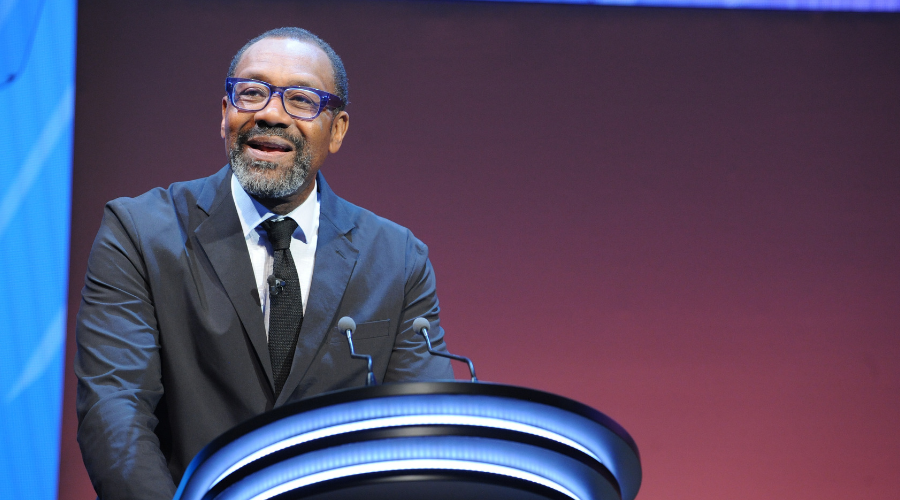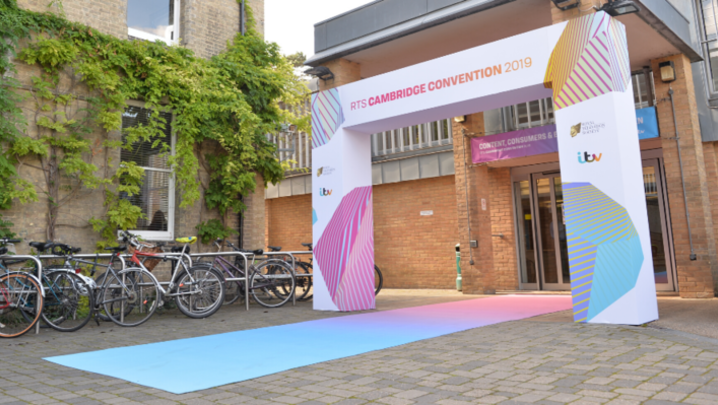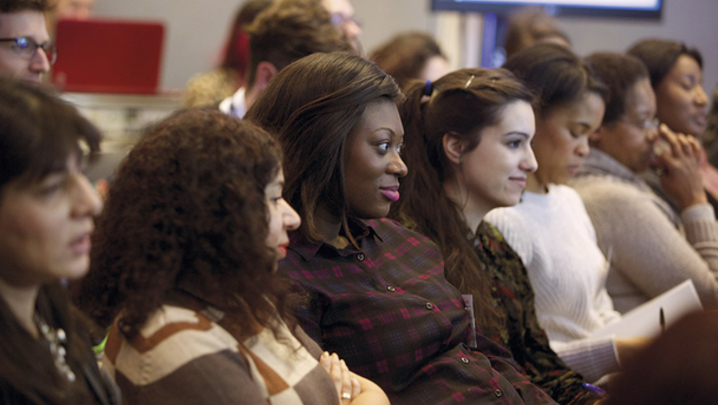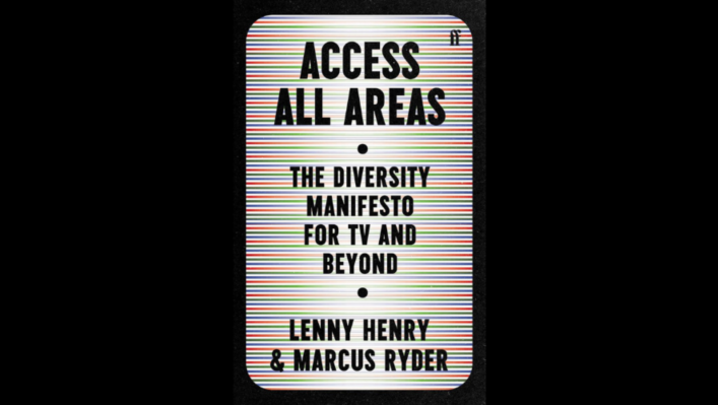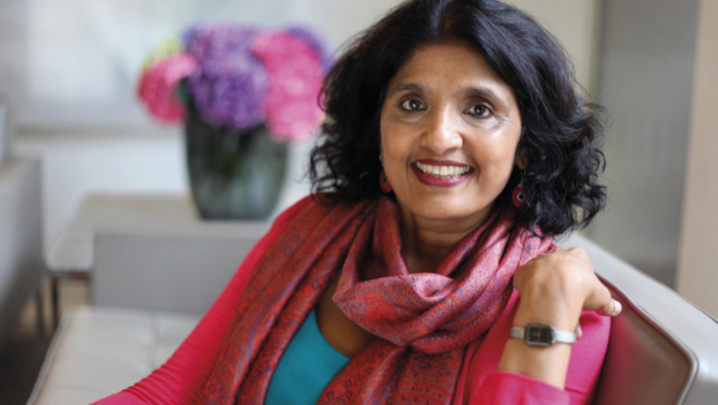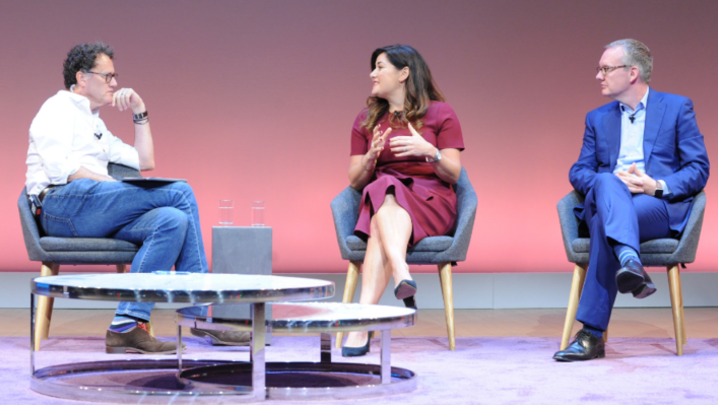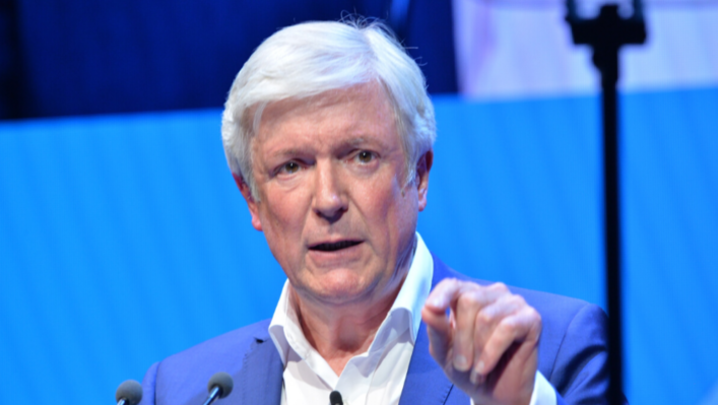Ask a funny man to deliver a speech on a deeply serious topic and what do you get? Humour, unquestionably, but also passion and an emotionally raised temperature in the room.
Following his speech, in a Q&A with diversity campaigner and advertising executive Karen Blackett, Lenny Henry described the pace of change in the hiring of women and disabled and ethnic-minority people behind the screen as “glacial”. His point was reinforced by the findings of Ofcom’s latest diversity report, discussed in earlier Cambridge sessions.
There was spontaneous audience applause as the actor, comedian and diversity campaigner highlighted what he called the “two-season jinx” and how it haunted series starring black actors, such ITV2’s Timewasters (see box).
Henry – whose autobiography, Who Am I, Again?, was published this month – had two main messages for RTS Cambridge: that diversity made television better and, perhaps surprisingly, he wanted all diversity schemes and initiatives scrapped.
Instead, that money could be spent on making shows that were genuinely diverse, such as the recent award-winning BBC Four series Soon Gone: A Windrush Chronicle, in which he participated.
"The fact is, diversity makes television better"
Emphasising that diversity and great TV were mutually inclusive, he identified the moral imperative for increasing diversity: “Society is shaped by the stories we tell ourselves and who tells those stories. Diversity creates a better society. And when I am giving evidence at the House of Lords, it’s the second thing I say. The first thing is: ‘Wake up, you old gits!’
“I do not believe we have to choose between great television or great diversity. The fact is, diversity makes television better,” he insisted.
The facts spoke for themselves. A University of California study of 1,000 US cable and network programmes found that shows where ethnic minorities made up 31% to 40% of the cast had the highest ratings. Another study found that shows with greater ethnic diversity generated more Twitter and Facebook traffic.
Henry continued: “And it is not just about diversity in front of the camera. The same study also found that scripted dramas and comedies that employed more women and ethnic-minority writers also did better, both in terms of ratings and financial returns.”
To prove how badly British TV was doing at increasing diversity, Henry quoted the following statistics: in the past four years the percentage of BAME people in the highest leadership positions had risen from 7.01% to only 7.14%, despite investment in leadership schemes.
Henry noted that, at BBC Studios, BAME representation had increased by 0.1% every year for the past couple of years. “I’m only citing BBC figures because it keeps the best statistics, but there is no reason to think that the other broadcasters have better figures,” he said.
However, the BBC did have some real diversity successes, including its 50:50 project to increase the number
of women contributors on screen.
However, according to Directors UK, only 13.6% of TV directors were women and, according to the BFI, only 0.3% of the film industry’s workforce were disabled. No wonder audiences, especially those from marginalised groups, were deserting traditional broadcasters for Netflix and streaming services. “Have you seen Narcos [on Netflix]? “That show is so diverse, the whitest thing in it is the cocaine.”
To fix the issue, Henry called for a completely different approach and one that didn’t involve “a bunch of training schemes with no jobs at the end. Or mentoring that goes nowhere. Or a Rooney Rule that increases the number of diverse candidates we interview but don’t employ.”
He said: “My suggestion is to take all the money, all the staff and all the time and effort we currently put into diversity and simply use it to increase the diversity of the programmes we commission.”
When Channel 4 and the BBC wanted to increase the proportion of programmes they made outside London, they put their money where their mouth was and commissioned programmes out of London.
Similarly, when government wanted British TV to boost the amount of children’s content it produced, ministers didn’t tell Channel 4 or ITV to attend commissioning training schemes. The remedy was setting up a £57m contestable fund.
"We ordered our diversity pizza ages ago. It’s time to deliver!"
“Do you have any idea what that kind of money could do to increase BAME and disability diversity?” asked Henry. “So, let’s just be honest. We’ve been talking about this long enough. We know what works. And we know what doesn’t work.”
“So let’s stop going crazy – let’s make diversity work once and for all and make some brilliant television.
“It’s like a pizza. What makes it awesome is the mixture, the combination of things on top. Different flavours, different colours, all complementing each other. So let’s do that.
“We ordered our diversity pizza ages ago. It’s time to deliver!”
In Session Seventeen, Sir Lenny Henry was interviewed by Karen Blackett, UK country manager, WPP UK, and Chair, MediaCom, UK & Ireland. The producer was Verina Burt. Report by Steve Clarke.
Q&A
Question
Karen Blackett: You talked about scrapping all diversity training schemes. I disagree with that. In my day job at WPP, I talk about the genius of “the and”: it’s not one or the other, it’s both. So, to your point, surely the training schemes and the mentoring schemes take time to effect change?
Answer
Lenny Henry: I don’t mind white, able-bodied, heterosexual men doing mentoring schemes and training. That’s fine. But black people, women, and people with disabilities don’t need another training course and another initiative. They just want another opportunity to show how brilliant they are at doing their job.
Question
Karen Blackett: But if it was not about training them in terms of their skillset, if it was a programme to help nurture their ideas and their ability to be elevated, would that be OK?
Answer
Lenny Henry: Yes, if it’s going to help elevate them to another position; and, acknowledging that they are good, but they [just] need a particular skillset to get to the next level. But not “You’re just not good enough”, because that’s insulting.
Question
Karen Blackett: There’s a difference between pipeline, in terms of people who have no experience and getting them into the industry, and people in the middle who aren’t progressing.
Answer
Lenny Henry: Who aren’t getting the nod… The nod is difficult. Who makes the decision about who gets the nod and who doesn’t? – that’s tricky if you’re a minority or marginalised in the workplace.
It’s almost like you’ve got to perform out of your skin in order to be noticed.
The ‘two-season jinx’
ITV2’s Timewasters was recommissioned after series 1 but so far there’s been no decision on a third series.
"New people need to be given the opportunity to show what they can do"
Lenny Henry: ‘The thing about shows with black writers is that there’s a one- or two-season jinx. What I’ve noticed is things such as Dad’s Army and Only Fools and Horses get 16 years to get the content right, while people of colour have one or two goes.
‘We only get one shot for our programme to have an impact and then it’s dumped. That’s something we need to change. Samuel Beckett said: “Fail, fail again and fail better.”
‘It’s difficult, because I know there are no soft slots and I understand the financial thing, but I do think that new people need to be given the opportunity to show what they can do – and two seasons isn’t enough.’

